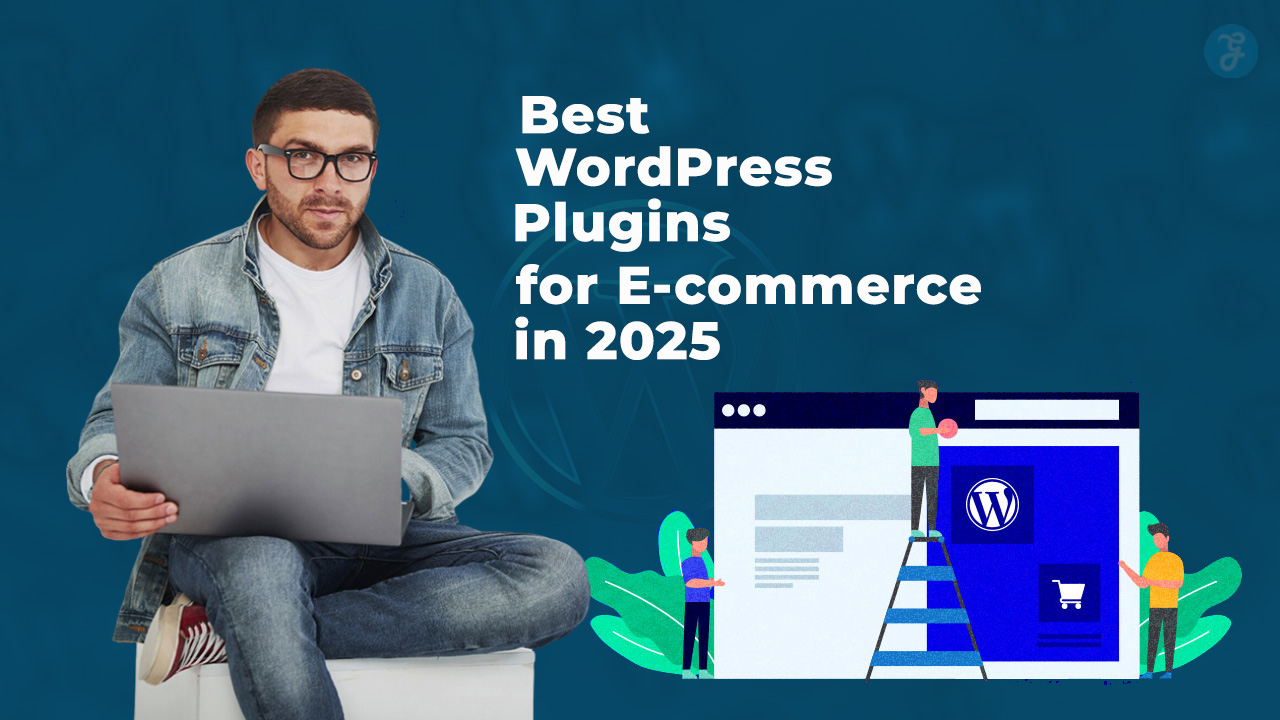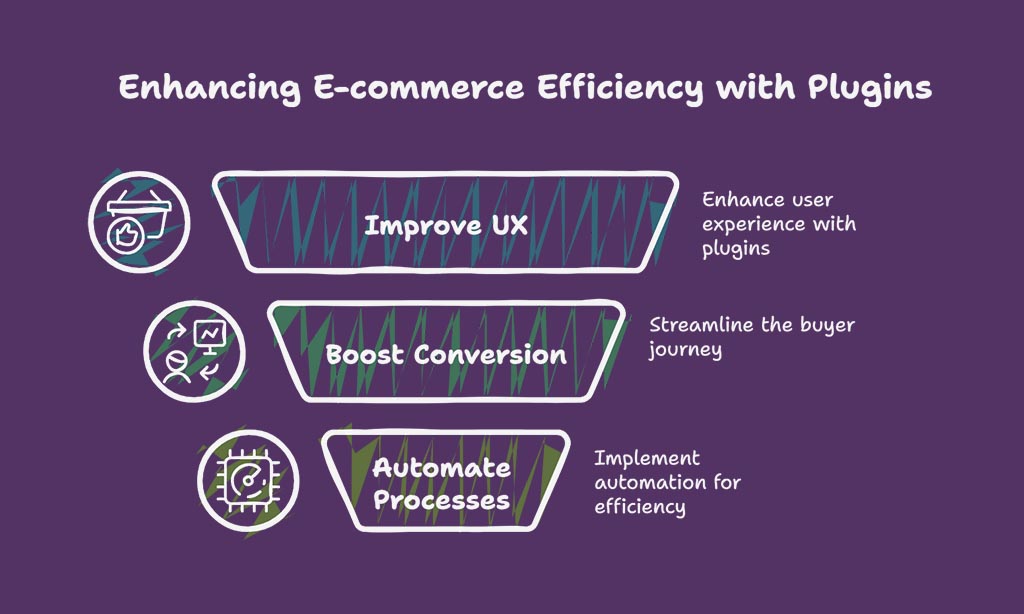In the ever-evolving world of online commerce, staying competitive in 2025 requires more than just a sleek website and great products. With millions of online stores vying for consumer attention, e-commerce businesses need tools that streamline operations, enhance user experience, and ultimately boost sales. This is where WordPress plugins come in.
If you’re using WordPress to power your e-commerce store, you’re in luck. The platform supports thousands of plugins tailored to different business needs. But with so many options, how do you choose the right ones?
This article explores the 10 Best WordPress Plugins for E-commerce Stores in 2025—handpicked to help you grow, manage, and scale your online business efficiently. From checkout optimization and SEO tools to customer support and analytics, these plugins can redefine your store’s performance.
We provide an in-depth analysis of each tool, backed by recent trends, user case studies, and comparison tables for smarter decision-making.
Why WordPress Plugins Matter for E-commerce Success
Plugins can transform a basic online store into a fully functional e-commerce powerhouse. They add vital features such as product filters, customer reviews, shipping calculators, and more.
Improving User Experience (UX)
A smooth shopping experience keeps customers coming back. Plugins that enhance UX—like faster loading times or intuitive navigation—can significantly increase your retention rate.
Boosting Conversion Rates
Conversion-focused plugins streamline the buyer journey, reduce cart abandonment, and increase average order value.
Automating Business Processes
From email automation to inventory management, plugins save time and reduce human error, allowing you to focus on growth strategies.
Key Features to Look for in E-commerce WordPress Plugins
Mobile Responsiveness
With over 60% of online purchases made via mobile, plugins must work seamlessly on all devices.
SEO Optimization
Search visibility is critical. Plugins that optimize metadata, content structure, and image SEO can significantly improve rankings.
Payment Integration
Your plugin should support multiple payment gateways like Stripe, PayPal, and digital wallets for global reach.
Scalability and Support
Look for plugins that grow with your business and provide timely support to resolve any issues.
Comparison Table of Key Plugin Features
| Plugin Name | Mobile Friendly | SEO Support | Payment Integration | Support Quality |
| WooCommerce | Yes | Yes | Yes | Excellent |
| Easy Digital Downloads | Yes | Yes | Yes | Good |
| CartFlows | Yes | Yes | Yes | Excellent |
| WP Rocket | Yes | Indirect | N/A | Excellent |
| Rank Math | Yes | Yes | N/A | Excellent |
10 Best WordPress Plugins for E-commerce Stores in 2025
Before diving into the plugin breakdowns, it’s essential to recognize how each of these tools plays a vital role in enhancing specific aspects of an e-commerce store. Whether you’re trying to optimize checkout flow, boost SEO, or increase page load speed, the right plugin can provide a major advantage.
As we explore these plugins, think about your store’s current challenges and how these solutions align with your growth goals.
1. WooCommerce – The E-commerce Powerhouse
WooCommerce remains the most widely used e-commerce plugin for WordPress, powering over 28% of all online stores globally. It allows full customization, seamless product management, and offers a massive library of extensions. In 2025, WooCommerce continues to dominate due to its scalability and support for omnichannel strategies.
The plugin’s versatility makes it a top choice for newcomers and enterprises alike. With built-in compatibility and vast community support, WooCommerce is the backbone of modern online stores.
Key Features
- Seamless integration with WordPress
- Wide range of official and third-party extensions
- Full control over design and checkout
- Built-in support for physical and digital products
- Extensive REST API for developers
Pros & Cons
| Pros | Cons |
| Free core version | Requires add-ons for complete functionality |
| Scalable and flexible | Can get resource-intensive with extensions |
| Huge global community | Initial learning curve for beginners |
Best For
Businesses of all sizes, especially those looking for a robust and flexible store foundation.
Example Use Case
ABC Tech Store, a mid-sized electronics retailer, used WooCommerce to launch 500+ SKUs with advanced filters, multilingual support, and inventory sync with Amazon FBA.
2. Easy Digital Downloads – Digital Goods Simplified
Designed specifically for selling digital products, Easy Digital Downloads (EDD) eliminates unnecessary complexity. It’s lightweight, secure, and purpose-built, making it ideal for entrepreneurs selling software, courses, music, or digital art. Its simplicity doesn’t compromise power, with powerful extensions to scale as needed.
The clean dashboard and license control tools make EDD a favorite among digital creators. It’s built to offer seamless experiences for both sellers and customers.
Key Features
- Tailored checkout flow for digital goods
- Integrated payment gateways
- Detailed customer and order tracking
- File access control for secure delivery
- Flexible discount and licensing system
Pros & Cons
| Pros | Cons |
| Optimized for digital sales | Not suitable for physical products |
| Developer-friendly | Limited design customization |
| Extensive add-ons available | Some essential features require pro version |
Best For
Solopreneurs and digital product creators who need a streamlined and secure sales platform.
Example Use Case
CourseLaunch Pro sells online video lessons globally. With EDD, they integrated drip content and license management for a frictionless user journey.
3. CartFlows – Optimize Checkout Funnels
CartFlows revolutionizes how checkouts are handled. Its intuitive funnel builder, combined with WooCommerce, helps reduce cart abandonment by 25% or more through custom landing pages and post-purchase offers.
This plugin empowers merchants to customize each funnel stage, enhancing the buyer’s journey. With robust features like A/B testing and upsell tracking, it’s a must-have for serious sellers. In 2025, CartFlows stands out as the go-to solution for optimizing sales conversion.
Key Features
- Ready-made sales funnel templates
- One-click upsells and order bumps
- A/B split testing
- Dynamic link tracking
- Checkout page editor
Pros & Cons
| Pros | Cons |
| Improves conversions significantly | Paid version needed for full features |
| Drag-and-drop builder | Requires WooCommerce |
| Excellent customer support | May conflict with some themes |
Best For
Stores focused on maximizing revenue from every visitor through advanced funnel strategies.
Example Use Case
StyleFusion Boutique implemented CartFlows and saw a 30% increase in order value within 60 days through one-click cross-sell bundles.
4. WP Rocket – Speed Up Your Store
Site speed is crucial in 2025, not just for UX but also for SEO. WP Rocket leads the charge by improving page load times through caching, file optimization, and image lazy loading, all without needing a developer.
The plugin is beginner-friendly and delivers immediate performance improvements upon activation. WP Rocket enhances Core Web Vitals, which are key ranking signals. Its integration with CDNs and advanced caching features ensures your store remains lightning-fast.
Key Features
- Page caching and browser caching
- Minification of HTML, CSS, JavaScript
- GZIP compression
- Image lazy loading
- CDN compatibility
Pros & Cons
| Pros | Cons |
| Significant speed improvement | No free version |
| Beginner-friendly setup | Not e-commerce specific |
| Enhances Core Web Vitals | Requires license renewal |
Best For
All online stores aiming to improve load speed, SEO performance, and user satisfaction.
Data Point
Google reports that a 1-second delay in page load can result in a 7% drop in conversions. WP Rocket helps eliminate that risk.
5. Rank Math – Boost Your SEO Game
Rank Math is the all-in-one SEO plugin tailored for e-commerce growth. With automation and detailed insights, it helps stores dominate SERPs by optimizing product pages, categories, and blog content. The plugin supports advanced schema markup and AI-powered recommendations.
With a modular approach, users can enable only the features they need. Rank Math’s intuitive dashboard and integration with Google tools make it an invaluable asset in any SEO strategy.
Key Features
- Product and image SEO optimization
- Rich snippet integration
- AI-powered content analysis
- Redirect manager and 404 monitor
- Google Analytics and Search Console integration
Pros & Cons
| Pros | Cons |
| Easy to use and powerful | Initial setup may be time-consuming |
| Excellent documentation | Too many features for simple needs |
| Free version is generous | Learning curve for new users |
Best For
Store owners looking to grow organic traffic, optimize visibility, and automate SEO tasks.
Example Use Case
GreenGlow Skincare doubled its organic traffic in 5 months using Rank Math’s schema, image optimization, and automated internal linking tools.
6. YITH WooCommerce Wishlist – Improve Engagement
Adding wishlist functionality increases return visits and social sharing. YITH WooCommerce Wishlist encourages customers to save products and share them with friends or family, which improves brand stickiness. It provides behavioral insights that inform stock decisions and promotions.
The wishlist can be customized to match your branding seamlessly. As consumer buying behavior becomes more planned, this plugin taps into the psychological triggers of anticipation and sharing.
Key Features
- Wishlist creation and sharing
- Customizable button and layout
- Integration with WooCommerce variables
- Analytics to track popular products
Pros & Cons
| Pros | Cons |
| Boosts user engagement | Limited free version |
| Drives social traffic | Not essential for all product types |
| Easy to integrate | Needs styling for visual match |
Best For
Fashion, lifestyle, gift, or home decor stores that benefit from high customer return rates.
Trend Insight
According to HubSpot, 43% of shoppers use wishlists to plan purchases during promotional seasons.
7. TrustPulse – Real-Time Social Proof
TrustPulse leverages FOMO (fear of missing out) by displaying real-time user actions like purchases or signups. This builds credibility and drives conversions, especially for new or lesser-known stores. The plugin uses smart targeting to display notifications based on user activity.
TrustPulse seamlessly integrates with major platforms and offers insightful analytics. It creates a sense of urgency that pushes shoppers to take immediate action, boosting engagement.
Key Features
- Real-time purchase notifications
- Behavioral targeting
- Mobile-optimized displays
- Simple integration
Pros & Cons
| Pros | Cons |
| Boosts trust instantly | Limited design options |
| Encourages action through FOMO | May feel intrusive if overused |
| No coding required | Premium plans can be pricey |
Best For
New e-commerce businesses or stores introducing new product lines.
Stat Insight
Stores using social proof saw conversion rates increase by up to 15%, as per a 2024 BigCommerce study.
8. LiveChat – Enhance Customer Support
LiveChat allows instant support to potential buyers, increasing trust and reducing drop-offs during the buying process. It’s particularly useful for high-ticket items or complex products. The plugin supports proactive messaging and integrates with CRMs and email platforms.
In 2025, customer expectations demand real-time solutions—LiveChat delivers just that. It also provides detailed analytics and automation features to further elevate your customer service game.
Key Features
- Custom chat widget
- Chat transcripts and ticketing
- Integration with CRM and email platforms
- Offline message support
Pros & Cons
| Pros | Cons |
| Improves customer satisfaction | Subscription-based |
| Quick setup and integration | Can slow down site if overloaded |
| Real-time query resolution | Basic plan lacks advanced features |
Best For
Electronics, B2B, or service-based stores where quick support drives trust and decisions.
Case Study
SkyOffice Furniture reduced customer drop-offs by 20% after installing LiveChat with pre-sale product guidance.
9. Mailchimp for WooCommerce – Email Marketing Made Easy
Mailchimp allows for personalized email marketing and retargeting campaigns. This plugin bridges WooCommerce with Mailchimp’s platform, offering automation for every customer journey stage.
From abandoned cart recovery to personalized recommendations, it powers high-performing campaigns. Mailchimp’s segmentation and performance tracking help you target the right customers with the right message. It’s an all-in-one email marketing powerhouse tailored for e-commerce needs.
Key Features
- Customer segmentation
- Abandoned cart recovery
- Product recommendations
- Performance analytics
Pros & Cons
| Pros | Cons |
| Seamless integration | Limited automation on free plan |
| Enhances customer retention | Requires Mailchimp account |
| Robust analytics | Template customization needed |
Best For
All e-commerce stores focused on long-term customer retention through email.
Marketing Stat
Email marketing generates $42 for every $1 spent—making it one of the highest ROI marketing channels.
10. MonsterInsights – Data-Driven Store Insights
Understanding user behavior is critical. MonsterInsights connects your store with Google Analytics, offering real-time insights into traffic, user engagement, and purchase patterns. Its user-friendly interface makes data accessible to non-technical users. You can track revenue, conversion rates, and campaign effectiveness all in one place.
The plugin’s actionable reports help you identify what’s working—and what’s not—so you can continuously improve your store’s performance.
Key Features
- Enhanced e-commerce tracking
- User-friendly dashboards
- Audience behavior reports
- Sales conversion funnels
Pros & Cons
| Pros | Cons |
| Actionable performance metrics | Limited free version features |
| Visual reports for easy analysis | Can be overwhelming initially |
| Integration with WooCommerce | Requires GA4 setup |
Best For
Store owners and marketers who want granular data to refine user journeys and marketing strategies.
Example Use Case
TechTrek Gadgets used MonsterInsights to identify high-performing content, resulting in a 40% increase in product page traffic.
How to Choose the Right Plugin for Your Store
Define Your Store’s Needs
Different stores have different goals. Define whether your priority is SEO, speed, design, or customer support.
Consider User Reviews & Support
Look for plugins with high ratings and active customer support. Frequent updates also indicate long-term plugin reliability.
Test Compatibility with Your Theme & Other Plugins
Always test on a staging site before installing a new plugin on your live store. Conflicts can slow down or crash your website.
Final Thoughts on the Best WordPress Plugins for E-commerce Stores
Choosing the right tools can make or break your e-commerce business. With the 10 Best WordPress Plugins for E-commerce Stores in 2025, you’re equipped with powerful solutions to boost performance, enhance customer experience, and drive sales.
Whether you’re launching a new shop or optimizing an existing one, each plugin in this list offers unique features tailored for growth in today’s competitive market. Don’t forget to align plugin capabilities with your business goals to get the most out of your e-commerce investment.
Ready to take your store to the next level? Start with the 10 Best WordPress Plugins for E-commerce Stores in 2025 and build the future of your online business today.







































